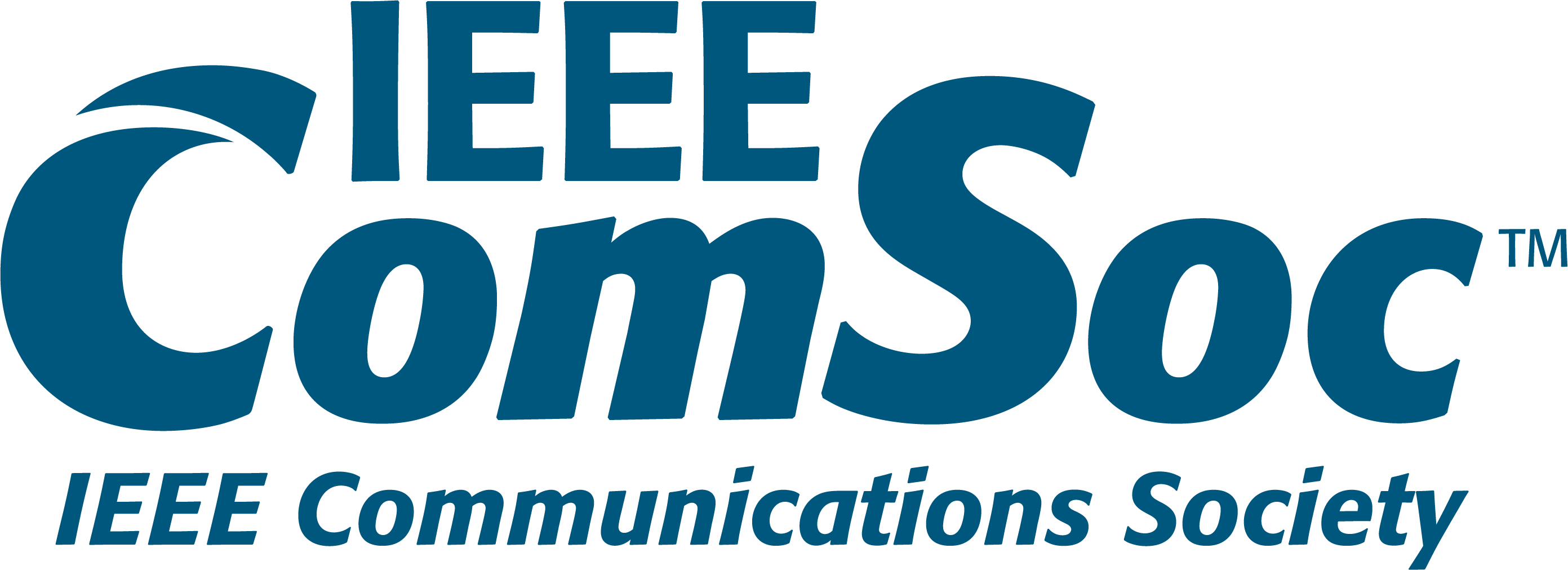 会议背景
会议背景Welcome to the official website of the 2026 8th International Symposium on Computational and Business Intelligence (ISCBI 2026). The Symposium will be held in Bali Island, Indonesia during February 6-8, 2026. ISCBI 2026 is co-sponsored by IICCI and Binus University, Indonesia. The aim as well as objective of ISCBI 2026 is to present the latest research and results of scientists working in the fields related to Computational and Business Intelligence. This Symposium provides opportunities for the delegates to exchange new ideas and application through face-to-face discussions, to establish business or research relations and to find global partners for future collaborations. We hope that the outcome of ISCBI 2026 will yield significant contributions to the knowledge in the emerging areas of Computational & Business Intelligence.
After the immensely successful ISCBI 2025, ISCBI18, ISCBI17, ISCBI16, ISCBI15, ISCBI14 & ISCBI13, we are expecting ISCBI26, the 8th anniversary of ISCBI, to be more exciting, stimulating & educative The intention is to establish an effective platform for institutions and industries to share ideas and to present the works of scientists, engineers, educators and students across the globe. The organizing committee of Symposium is pleased to invite prospective authors to submit their original manuscripts for possible presentation at ISCBI 2026.
 组织机构
组织机构   |
Patrons |
     |
 联系方式
联系方式投稿方式:https://www.zmeeting.org/submission/iscbi2026
会议邮箱:iscbi@chairmen.org
会议专员:王秘书
 大会组委
大会组委Keynote Speaker I

Prof. Thomas Hanne
University of Applied Sciences and Arts Northwestern Switzerland, Switzerland
Thomas Hanne received master's degrees in Economics and Computer Science, and a PhD in Economics. From 1999 to 2007 he worked at the Fraunhofer Institute for Industrial Mathematics (ITWM) as senior scientist. Since then he is Professor for Information Systems at the University of Applied Sciences and Arts Northwestern Switzerland and Head of the Competence Center Systems Engineering since 2012.
Thomas Hanne is author of more than 230 journal articles, conference papers, and other publications and editor of several journals and special issues. His current research interests include computational intelligence, evolutionary algorithms, metaheuristics, optimization, simulation, multicriteria decision analysis, natural language processing, machine learning, systems engineering, software development, logistics, and supply chain management.
Keynote Speaker II

Prof. Jerome Yen
University of Macau, Macau
Prof. Yen currently a Distinguished Professor in the Faculty of Science and Technology (FST) at the University of Macau (UM). He obtained his Ph.D. in Systems Engineering and MIS from the University of Arizona. He used to hold appointments in the Department of Finance and Department of Mathematics at HKUST as adjunct professor as an honorary professor in the Dept of EEE at HKU. Prof. Yen is a well-established researcher and practitioner in the finance and banking community. He has published more than seventy journal papers in respectable journals and five books in China Financial Markets, Algo Trading and High Frequency Trading, as well as Pricing of Structured Products and Options Trading. His research has now focused on using hardware accelerators, like FPGA, GPU, and RSIC-V, to design platforms to improve the efficiency and accuracy of the financial computation.
Prof. Yen was the Deputy Chief Risk Officer at Cathay Financial Holdings (CFH) from 2005 to 2007 and Director of the Internet Finance Division of Hong Kong Applied Science and Technology Research Institute (ASTRI). He also provided advisory/consulting services to leading financial institutions, for example, Societe Generale, Hang Seng Bank, AIA, Bank of East Asia (BEA), Essences Securities in China, Great-wall Invesco, SinoPac, and China Construction Bank (CCB) in risk management, exotic options and structured products pricing, as well as building platform to support quick development of mutual funds.
 投稿须知
投稿须知Please read the instructions carefully prior to submitting
1. All submissions should be written in English and should have 4 to 5 pages, including figures, all of them in the US letter format pages. Ready versions of accepted papers exceeding five (5) pages, will be allowed pending payment of overlength charges (70$ for each additional page).
2. The full papers must be written in English.
3. The full paper submission is required for publication.
4. The version of your submission must be in the requested format. The authors are suggested to use the Conference Paper template.
5. Please email iscbi@chairmen.org if you have any queries.
Submission Method
Please upload your abstract or full paper to Conference Submission System.
All submitted articles should report original, previously unpublished research results, experimental or theoretical. Articles submitted to the conference should meet these criteria and must not be under consideration for publication elsewhere. We firmly believe that ethical conduct is the most essential virtual of any academic. Hence any act of plagiarism is a totally unacceptable academic misconduct and cannot be tolerated. If an author is found to commit an act of plagiarism, the following acts of sanction will be taken:
Reject the article submitted or delete the article from the final publications.
Report the authors violation to his/her supervisor(s) and affiliated institution(s)
Report the authors violation to the appropriate overseeing office of academic ethics and research funding agency.
Reserve the right to publish the authors name(s), the title of the article, the name(s) of the affiliated institution and the details of misconduct, etc. of the plagiarist.
 报名须知
报名须知 资料下载
资料下载 征稿主题
征稿主题We invite submissions of original research papers for the International Symposium on Computational and Business Intelligence. The conference aims to bring together researchers and practitioners from academia and industry to share their latest research, ideas, and developments in the fields of Computational & Business Intelligence.
1. Business Intelligence | |
| Analysis of business intelligence applications and analytics Applications in business intelligence Business intelligence and CRM Business intelligence and market analysis and marketing Business intelligence in logistics and supply chain management Data mining Autonomous agents and multi-agent systems | Case studies in business intelligence Data mining methodologies for business intelligence Business intelligence architectures Knowledge management and business intelligence Business intelligence for security analysis and fraud detection Decision making for business intelligence Statistical methods for business intelligence |
2. Computational Intelligence | |
2.1 Neural Networks and Neural Information Processing | |
| Associative memories Computational neuroscience Connectionist theory and cognitive science Mathematical modeling of neural systems Neurodynamic optimization and adaptive dynamic programming Principal component analysis and related methods Hybrid intelligent systems Supervised, unsupervised and reinforcement learning Brain computer interface Neuroinformatics and bioinformatics | Support vector machines and kernel methods Image processing Computer vision & pattern recognition Time series analysis Robotic and control applications Fraud detection Hardware implementation Real-world applications Emerging areas in neural networks |
2.2 Fuzzy Systems | |
| Fuzzy information processing Fuzzy decision making Fuzzy logic and fuzzy set theory Fuzzy hybrids Fuzzy and rough data analysis Fuzzy optimization and design Fuzzy systems modeling and identification | Fuzzy mathematics Fuzzy systems architectures and hardware Fuzzy image processing & pattern recognition Fuzzy control and systems Fuzzy data mining and forecasting Real-world applications Emerging areas in fuzzy systems |
2.3 Evolutionary Computation | |
| Ant colony optimization Artificial immune systems Artificial life Bioinformatics and bioengineering Classifier systems Coevolution and collective behaviour Cognitive systems and applications Evolutionary combinatorial and numerical optimization Constraints and uncertainty handling Cultural algorithms Cuckoo search Differential evolution Estimation of distribution algorithms Evolutionary computation for bioinformatics Evolutionary computation in dynamic and uncertain environments Evolutionary computer vision | Evolutionary data mining Evolutionary intelligent agents Evolutionary learning systems Evolutionary robotics Evolutionary techniques in economics, finance and marketing Evolvable hardware and software Evolved art and music Evolving neural networks and fuzzy systems Hybrid optimisation algorithms Memetic and hybrid algorithms Evolutionary multi-objective optimization Molecular and quantum computing Particle swarm optimization Real-world applications Representation and operators Self-adaptation in evolutionary algorithms Swarm Intelligence Theory of evolutionary computation Emerging areas in evolutionary computation |